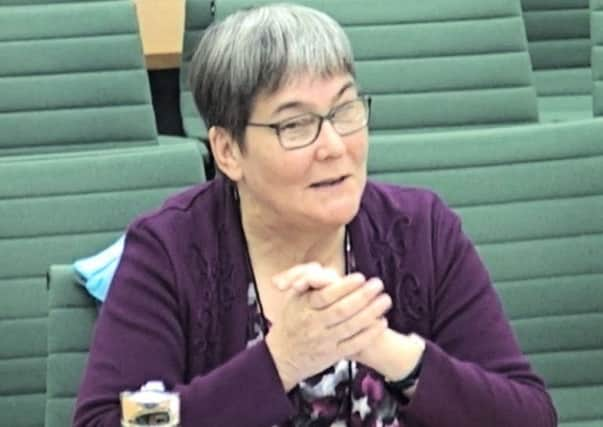Years of progress on disabled rights under dire threat


In the 1970s I studied at Sheffield University. At that time there were only five students who declared themselves as disabled people.
Much has changed since then. More disabled people study, we have more opportunities to live in the community, take part in culture and sport, gain employment and generally get on with our lives.
Advertisement
Hide AdAdvertisement
Hide AdAccording to the Government the UK leads the world in disability rights. So why has a respected United Nations committee just declared that the UK’s rights record amounts to a human catastrophe for disabled people?
Of course, if you declare yourself to be the best in the world, then inevitably that is how you will be judged. What needs to be understood is that when the UN looks at how well the Convention on the Rights of Disabled People has been implemented, it is looking at what is possible in that particular country according to its development and resources.
So, rightly, much more is expected of the UK than say Morocco (another country examined at the same time as the UK) that is less developed and has fewer resources.
It is arguable whether what is happening to disabled people in the UK today amounts to a catastrophe. To my mind that is a term I would apply to such times as the flooding that has taken place in the US, India, Pakistan and Bangladesh where thousands of people have lost everything. Nevertheless, there can be no doubt that what has been happening to disabled people in recent years is a disaster for us and undermines all the past progress that once made us a world leader in disability rights.
Advertisement
Hide AdAdvertisement
Hide AdPlenty of evidence was put to the UN committee in Geneva by organisations such as mine, but also from bodies across the UK such as the Equality and Human Rights Commission.
Evidence of increasing poverty as a result of cuts to social security; the lack of accessible housing; cuts to social care budgets resulting in many disabled people literally being confined to their own homes unable to go anywhere; the rapid increase in the number of people with mental health issues; the number of disabled people losing their adapted vehicles (92 a week in Yorkshire and Humber, extrapolating from national statistics) so those who are in employment now find it hard to get to work.
As the UN committee observed, the situation is particularly dire for disabled children who find themselves in the poorest households and more likely than in previous years to be educated in special schools, away from their peers in the local community.
The Government sent a team of largely inexperienced civil servants to Geneva to defend their record. Listening to their evidence, it felt like they were putting together a very poor job application. Much was made of “we have this law, we have this programme” – though many of these do not apply to disabled people anyway – or that “we have these regulations” – although Eric Pickles has seen to it that there are far fewer of these. What was lacking was any evidence that any of these measures were actually working for disabled people. I almost felt sorry for the Government team trying to defend the indefensible.
Advertisement
Hide AdAdvertisement
Hide AdAnd that brings us to the heart of the problem. We have various laws that supposedly guarantee rights for disabled people but the Government does nothing to ensure those laws are implemented.
When they introduce measures to cut, cut, cut, they fail to take account of the impact those policies might have on sections of our community. We need support and inevitably that support costs money.
Then there is Brexit. Many of the rights disabled people are supposed to have are tied up in EU directives and legislation. That is why it is so important that when we leave the EU, we incorporate the Convention on the Rights of Disabled People into UK law otherwise there is a danger that we go even further backwards.
It will be a great pity if the Government ignores this report and its recommendations. Not only do we want the UK to be best in the world again but it does not make sound economic sense to leave disabled people so restricted that we cannot play our part as equal citizens.
Advertisement
Hide AdAdvertisement
Hide AdAs Theresa May herself said, we want a country that works for everyone. What is needed now is a properly funded strategy across the UK to implement the rights of disabled people as set out in the Convention.
To any Government Minister, I would say be careful how you lead your life. You might find yourself seriously injured in an accident, or you might acquire a long-term health condition.
You will probably be rich enough to cope, but such events just might give you an idea of why we disabled people need support to get on in our lives and to realise our human rights.
Sue Bott CBE is deputy chief executive of Disability Rights UK.